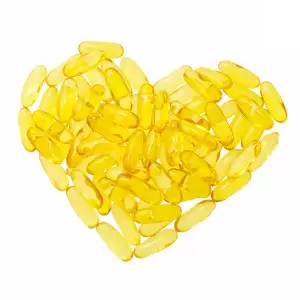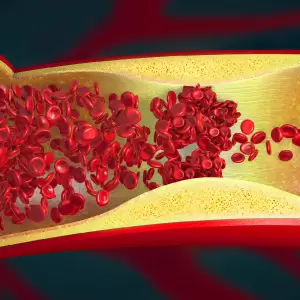
Omega-3 Supplementation and Cardiovascular Health – What’s the Updates?
Jul 26, 2021
Introduction
Cardiovascular health is the attention for decades since relevant diseases remain the major cause of death worldwide. While significant advances in medical treatments are available, we should always start taking care at the prevention stage, in which Omega-3 has been recommended all this while for cardiovascular health. However, this comes along with many debates. Facts speak louder than words, let us look into the latest scientific updates.
Latest Science Discovery Show Promising Cardiovascular Protective Effect

- A review article summarized a total of 40 studies that focuses on determining whether supplementation with EPA+DHA (varied from 400 – 5500mg/day) helps reduce cardiovascular disease (CVD) risk, and the relationship between dosage and other predictors and the risk of CVD outcomes 1:
| ✓ | Reported promising effectiveness of EPA+DHA supplementation in CVD prevention | |
| ✓ | The protective effect appears to be better with increasing dosage, especially among those having high CVD risk | |
| ✓ | Clinicians should begin to consider the potential benefits of Omega-3 (EPA+DHA) supplementation with 1000 – 2000mg/day dosages for primary* and secondary** CVD prevention |
*primary prevention = trying to prevent from getting a disease
**secondary prevention = trying to detect a disease early and prevent it from getting worse

- Another literature review article published on how Omega-3 works to benefit CVD, which looking at the haemostatic system (blood clotting) 2:
*Important remark: get medical advice before consuming Omega-3 at higher than indicated dose

- A long-term (8-12 years) observational study was done on a large population (around 428k people aged 40-69 years old) with no CVD, to investigate the outcome of habitual Omega-3 supplementation3 :
The Wrap Up
From several scientific studies, we knew that Omega-3 supplementation still gives a promising effect on CVD protection. It should be continuously advised as supplementation for CVD primary and secondary prevention due to the improvement reported. Regular intake is always suggested, especially for those having higher CVD risk or already experiencing CVD. Furthermore, a high dosage should be medically recommended according to individual clinical conditions, with extra caution if taking blood thinning medicine.
References
- Bernasconi AA et al. 2021. Effect of Omega-3 Dosage on Cardiovascular Outcomes: An Updated Meta-Analysis and Meta-Regression of Interventional Trials. Mayo Foundation for Medical Education and Research. 96 (2): 304-313.
- Golanski J et al. 2021. Effects of Omega-3 Polyunsaturated Fatty Acids and Their Metabolites on Haemostasis – Current Perspectives in Cardiovascular Disease. International Journal of Molecular Sciences. 22 (2394).
- Li ZH et al. 2020. Associations of habitual fish oil supplementation with cardiovascular outcomes and all cause mortality: evidence from a large population based cohort study. BMJ. 368:m456.



